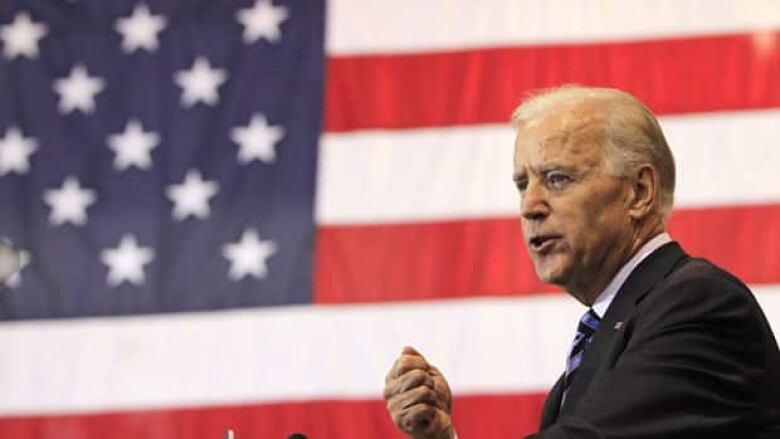A Romney-Biden White House? It's possible
A U.S. electoral college tie could produce a bizarre outcome

With the U.S. election as tight as it is, there's a theoretical, yet unlikely,scenario, in which the results could produce a President Mitt Romneyand Vice-PresidentJoe Biden administration.
While it may seem absurd, it is possible based on the U.S. electoral college system and the constitution whichrequiresa candidate towin the majority of electoralvotesin this case 270 to become president.
Butifneither candidate reaches that majority of electoral college votes, the12th Amendment says thatthestate delegations of theU.S. House of Representatives decide among thecandidateswho becomes president.The Republicans, whohave and are expected to retain a majority in the House, wouldchooseRomney as president.
TheSenate is then given the task to pick the vice-president.If after the election it is still controlled by the Democrats, Biden would become vice-president. (In fact, if the Senate is split, Biden, asvice-president and head of theSenate,would cast the deciding vote.)And there you would have a Romney-Biden administration.
But how would that come into play?
Electoral college tie
There are an even number of electoral college votes (538) that the candidates could evenly split.U.S President Barack Obama could win269 votes and Romney could win 269 votes. And this would all depend on how those crucial swing-states go.
Larry Sabato, professor of politics and director of the University of Virginia Center for Politics, highlightedon his "Crystal Ball" website justone of thescenarios in which the two candidates could receive the same number of electoral college votes.
If Obama took all the states John Kerry won in 2004, along with New Mexico and Ohio, Obamawould get269 votes. In this scenario, Romney would carry the swing-states ofFlorida, Nevada, Virginia, Colorado, Iowaand North Carolina while Obama would carry, along with Ohio, Wisconsin and New Hampshire.
'Faithless' electors
It's also possible that neither candidate could reach the magic 270 number if their electors in the electoral collegedecide not to vote for whom they have pledgedalso known as "faithless"electors, who could vote for anyone.
When Americans vote for the president, they vote for electors who about a month after the November election, gather in each of the state capitals and cast their ballots.The Republicans and Democratsfield a slate of electors who are typically chosen through state conventions and due to their party loyalty.
[IMAGEGALLERY galleryid=3207 size=small]
"The expectation is because you are a good partisan, of course you're going to vote as expected," Robert Alexander, professor of political science at Ohio Northern University told CBC News.
But Alexander, while doing research for his book Presidential Electors and the Electoral College: An Examination of Lobbying, Wavering Electors, and Campaigns for Faithless Votes, said he found that in the 2000, 2004 and 2008 elections, many of the electors were lobbied to consider changing their vote.
"In virtually all of the cases those attempts failed. But I also found that there were a number of electors that at least considered voting contrary to expectations. That was surprising."
Alexander said that there have beennine casesof faithlesselectorsin thepast 16 elections, including in 2004, when an electoral college voter voted for John Edwards twice, once as president and once asvice-president.
He added that while about30 states have laws thatforce electors to vote according to the popular will of the state, these laws may not necessarily be enforceable.
All this means thatif Romney, for example,won 271 electoral votes onNov.6but a couple of electorsdecided later tocasttheir ballot forsomeone else, Romney wouldlose the majority and the presidential and vice-presidential picks would go to the House and Senate.
"Maybe we want to see a Romney-Biden administration butI think most people don't want to see that," Alexander said. "So I think there may bea real attempt to make one of them blink in the electoral college to try and resolve it before it got to the House of Representatives and the Senate."












_(720p).jpg)


 OFFICIAL HD MUSIC VIDEO.jpg)
.jpg)



























































































